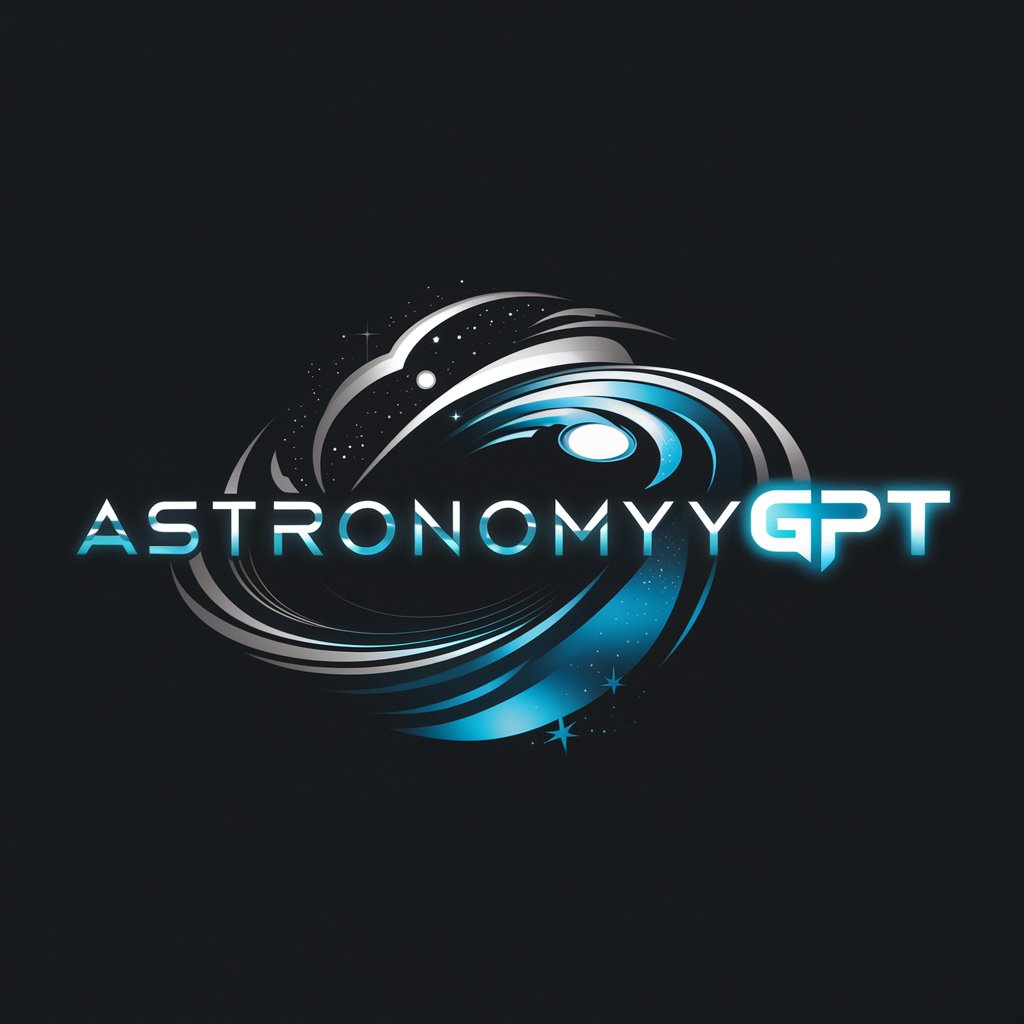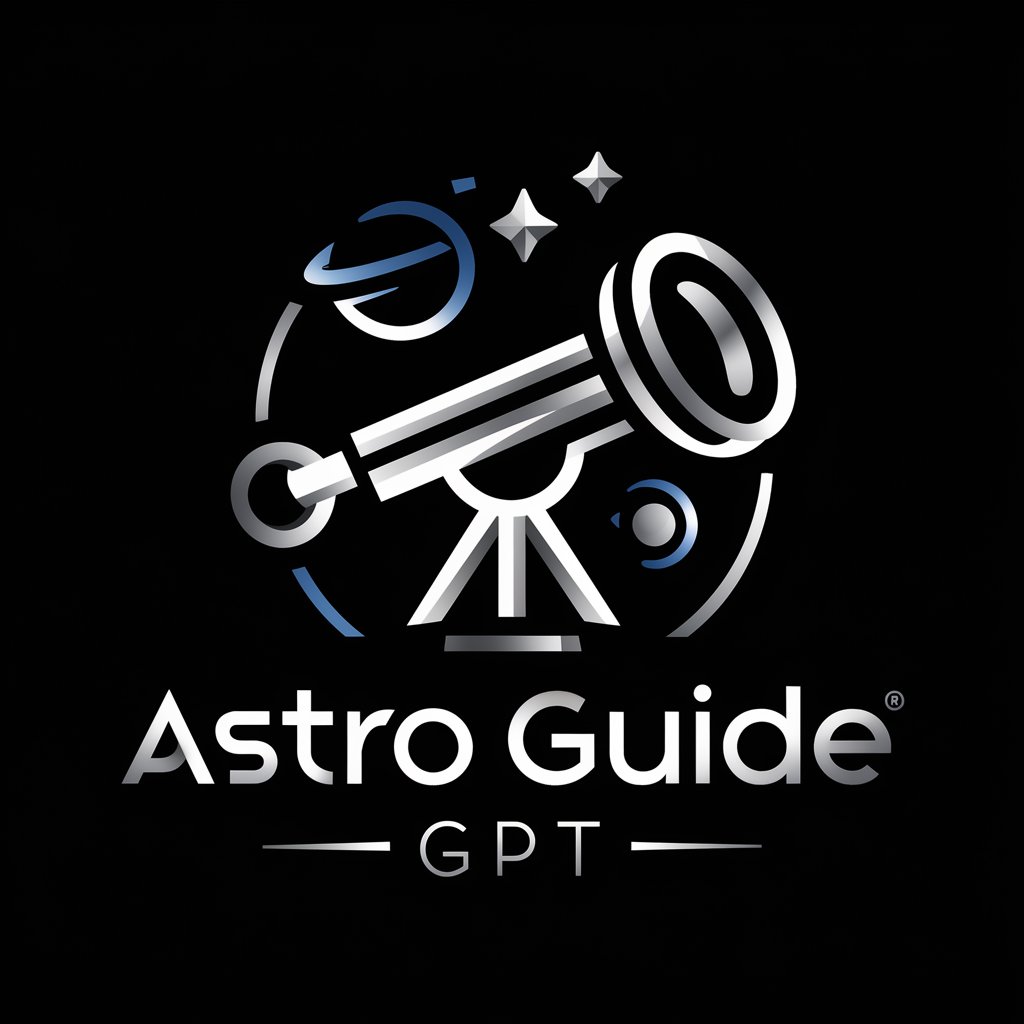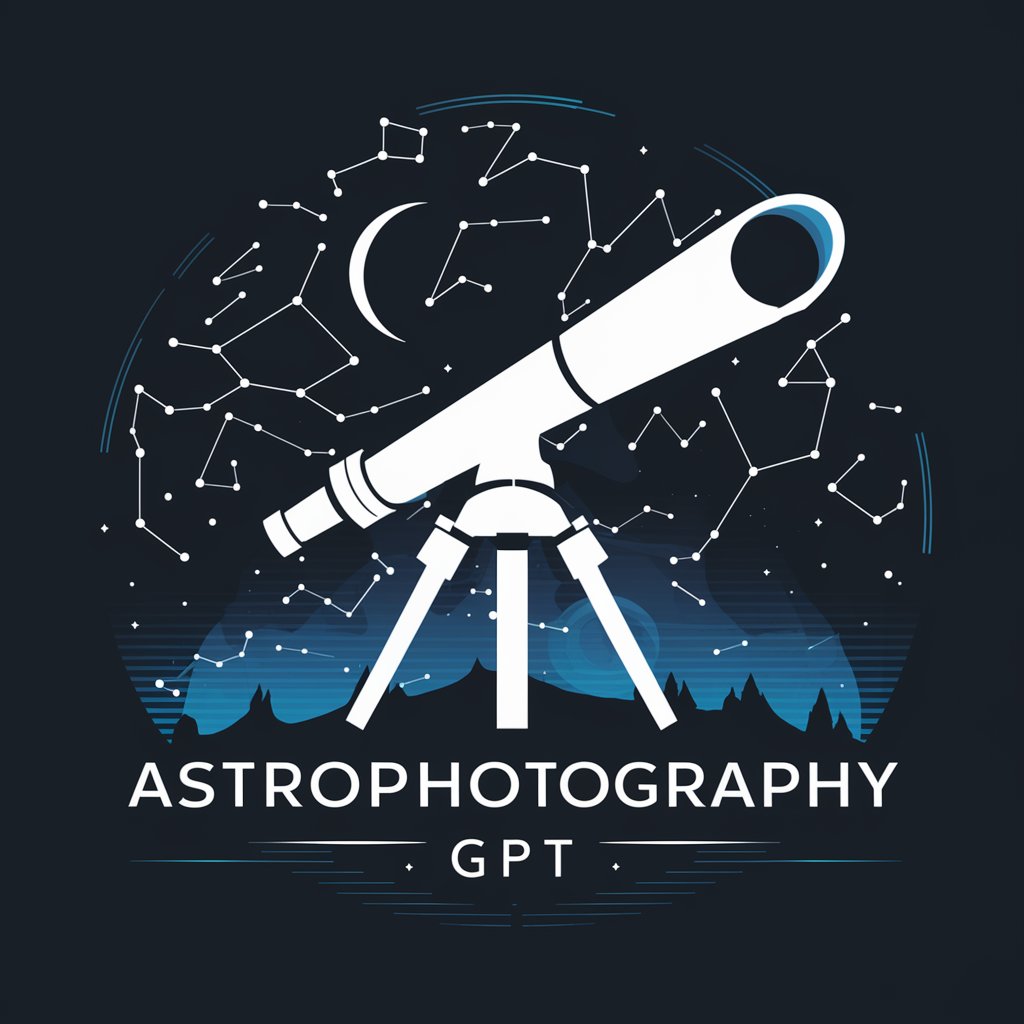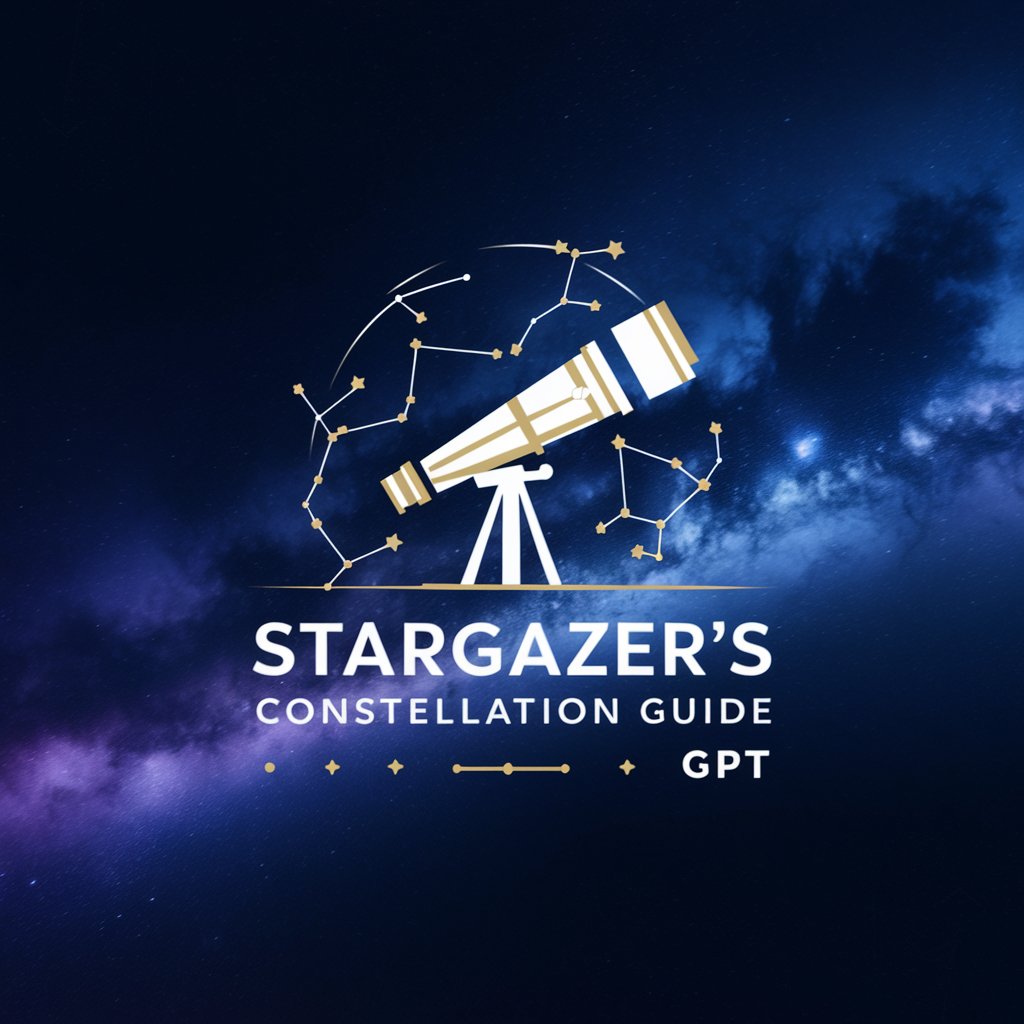
Stargazing Guide GPT - Astronomy Exploration Tool
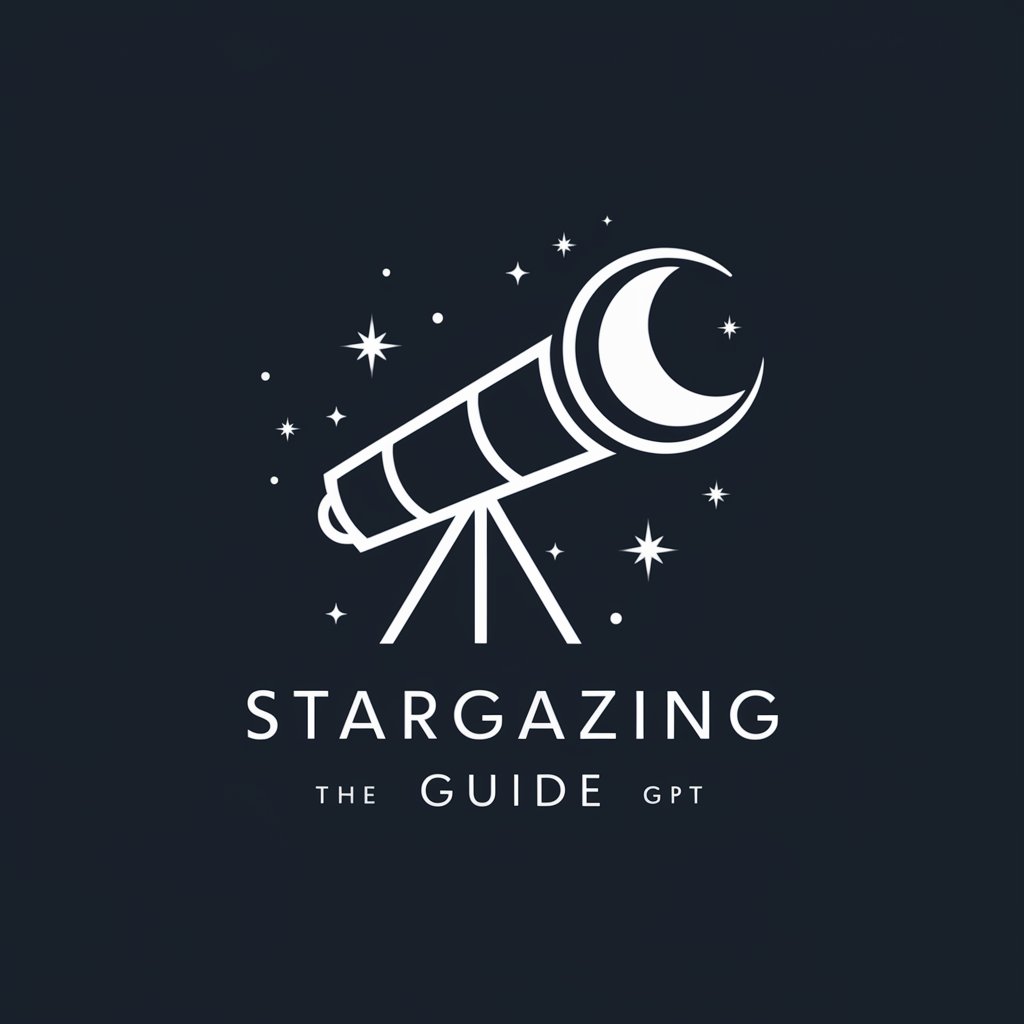
Welcome to Stargazing Guide GPT, your companion for exploring the night sky!
Illuminate the night sky with AI-powered guidance.
What celestial events can I look forward to this month?
How can I minimize light pollution for better stargazing?
Which planets are visible from my location tonight?
Can you explain the significance of the upcoming solar eclipse?
Get Embed Code
Introduction to Stargazing Guide GPT
Stargazing Guide GPT is a specialized digital assistant designed to enrich the experience of astronomy enthusiasts and casual stargazers. Its core functionality revolves around providing real-time information on celestial events, offering personalized stargazing tips based on geographical location, and answering a wide range of questions related to astronomy and celestial phenomena. A quintessential example of its application includes advising users on the optimal times for viewing specific celestial events, such as meteor showers or planetary alignments, from their own backyard. Furthermore, it can offer insights into the best stargazing practices to enhance visibility and enjoyment, such as minimizing light pollution and choosing observation sites with clear, dark skies. Powered by ChatGPT-4o。

Main Functions of Stargazing Guide GPT
Real-time Celestial Event Information
Example
Informing users about the peak nights of the Perseid meteor shower and offering viewing tips.
Scenario
A user planning a camping trip wants to know if they'll be able to witness a meteor shower. Stargazing Guide GPT provides dates, peak viewing times, and advice on where to look in the night sky.
Location-Based Stargazing Tips
Example
Advising on the best time and location to observe the Milky Way from a user's specific location.
Scenario
A stargazer living in a light-polluted urban area inquires about the best nearby locations for observing the Milky Way. The guide suggests optimal times and less light-polluted areas within a reasonable distance.
Astronomy Knowledge
Example
Explaining the causes of lunar phases and how they affect visibility of the moon.
Scenario
A school teacher preparing a lesson on the moon phases seeks a detailed explanation to share with their students. The guide provides an easy-to-understand breakdown of how and why the moon's appearance changes over the month.
Ideal Users of Stargazing Guide GPT Services
Astronomy Enthusiasts
Individuals with a deep interest in astronomy who seek to expand their knowledge and experience of the night sky. They benefit from detailed celestial event forecasts, advanced stargazing techniques, and in-depth explanations of astronomical phenomena.
Educators and Students
Teachers and students looking for accessible astronomy resources to support learning and teaching. The guide offers clear explanations of complex topics, practical observation tips, and updates on celestial events that can enhance educational experiences.
Casual Stargazers
People with a casual interest in watching the night sky who may not have extensive astronomy knowledge. They benefit from simple tips on when and where to look for planets, stars, and meteor showers, making stargazing a more accessible and enjoyable hobby.

How to Use Stargazing Guide GPT
1. Access the Tool
To begin using Stargazing Guide GPT for a seamless experience without the need for signing in or subscribing, simply visit yeschat.ai to engage in a free trial.
2. Define Your Location
Input your current location to receive customized stargazing tips, including the best times for observation and what celestial bodies you can expect to see.
3. Ask Your Questions
Submit any questions you have about celestial events, stargazing tips, or astronomy knowledge directly to the Stargazing Guide GPT for detailed, expert answers.
4. Explore Events
Use the tool to find out about upcoming celestial events, such as meteor showers and eclipses, that you can observe from your location.
5. Follow Ethical Guidelines
While stargazing, ensure you respect private property, minimize light pollution, and follow any other ethical guidelines provided by Stargazing Guide GPT.
Try other advanced and practical GPTs
Andrew Darius' Legal Advisor AI
Empowering Legal Decisions with AI

Innovators Journey
Empowering Leaders with AI Innovation

DisneyPixarStyleMaker
Bringing Your Photo to Animated Life

Seduction Expert
Crafting Personalized Connections with AI

Aristotle
Empowering decisions with ancient wisdom

Image-to-HTML
Transform Images into HTML Seamlessly

Retirement Lifestyle Planner
Tailoring Your Golden Years with AI

DJ Guru
Harmonizing AI with Every Beat

SmartEats Planner
Nutrition, Tailored to Your Taste

Youth Financial Literacy Tutor
Empowering Youth with AI-Driven Financial Education

Morty the Tech Parrot
Empowering your tech projects with AI wisdom.

All Smiles
Design Your Smile with AI

Stargazing Guide GPT Q&A
What celestial events can Stargazing Guide GPT inform me about?
Stargazing Guide GPT provides information on a variety of celestial events, including meteor showers, eclipses, planet visibility, and other significant astronomical occurrences, tailored to your location and the current date.
Can I get stargazing tips for my specific location?
Yes, by inputting your location, Stargazing Guide GPT offers personalized stargazing tips, such as the best time to observe, what celestial bodies you can see, and how to minimize light pollution for optimal viewing.
Does Stargazing Guide GPT offer real-time celestial event updates?
Indeed, Stargazing Guide GPT uses real-time data to provide updates on celestial events, ensuring you receive the most current information for planning your stargazing activities.
How can I use Stargazing Guide GPT for educational purposes?
Educators and students can use Stargazing Guide GPT as a learning tool to explore astronomy, understand celestial events, and prepare for observational activities, enriching their educational experience with up-to-date astronomical information.
What ethical guidelines does Stargazing Guide GPT promote for stargazing?
Stargazing Guide GPT encourages responsible stargazing practices such as respecting private property, minimizing light pollution by using appropriate lighting, and promoting the conservation of dark sky areas to preserve the night sky for future generations.
